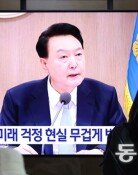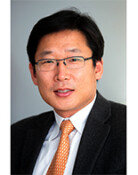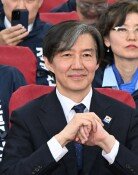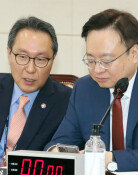Failure to Choose New Prime Minister
Failure to Choose New Prime Minister
Posted September. 16, 2010 13:49,
With a population of 48.9 million, Korea is the worlds 15th-largest economy, ninth-largest exporter, and fifth-biggest car manufacturer. The country also tops the globe in school attendance, literacy and Internet penetration. Though these figures demonstrate Koreas international standing, the country lags behind in politics. A month has passed since Chung Un-chan resigned as prime minister and two weeks have gone by since Prime Minister-designate Kim Tae-ho withdrew his candidacy. Yet the government is still struggling with the nomination of the next prime minister.
Article 86 of the Constitution stipulates that the prime minister should control the Cabinet under the president`s direction. Few prime ministers, however, have controlled all government ministries. President Lee Myung-bak also wants the prime minister to focus on a single area. Former Prime Minister Han Seung-soo paid attention to resource diplomacy and Chung to the revision of the Sejong City developmental plan. Kim might have been for a generational change in presidential candidates. Those qualified to be the next prime minster might not be willing to go through a grueling parliament confirmation hearing to assume a post for one to two years.
With the delay of the prime ministers nomination, the appointments for foreign, culture and knowledge economy ministers are also being delayed. Officials who are acting ministers have also postponed personnel management and policymaking until new heads are appointed. The government should have made Chung stay at his post until his successor was appointed.
Integrity is clearly a major value the government should consider in choosing the next prime minister. The ability to implement policies cannot be put on the back burner, however. In a country achieving rapid economic growth in a short period of time, finding an impeccable figure is not easy. A figure mentioned as a candidate for prime minister said he declined the nomination after meticulously reflecting on his 30 years of public service because two or three things can be a bone of contention in a confirmation hearing. Some jokingly say the next prime minister should come from those in their 20s and 30 if integrity is the sole yardstick.
With high public expectations for the morality for public officials, the government cannot lower moral standards for the next prime minister and Cabinet members.
It is frustrating to see the presidential office lacking proper personnel information. All the more embarrassing is the comment that no appropriate figure exists. If the government continues to find candidates based on its limited experience and human networks of those responsible for personnel management, it will find no candidate. The way of conducting parliamentary confirmation hearings is also problematic since lawmakers focus on criticizing Cabinet ministers-designate to win over the people without giving opportunities for nominees to answer. All this overshadows Koreas stellar achievements in other areas.
Headline News
- Israel prepares for retaliation against Iran
- Samsung reclaims top spot, surpassing Apple in smartphone market
- 77% of Koreans in 20s and 30s are 'Kangaroo Tribe' due to job crisis
- KBO referees embroiled in controversy over ABS decision concealment
- Inflation, oil price surge put double shock on global economy







